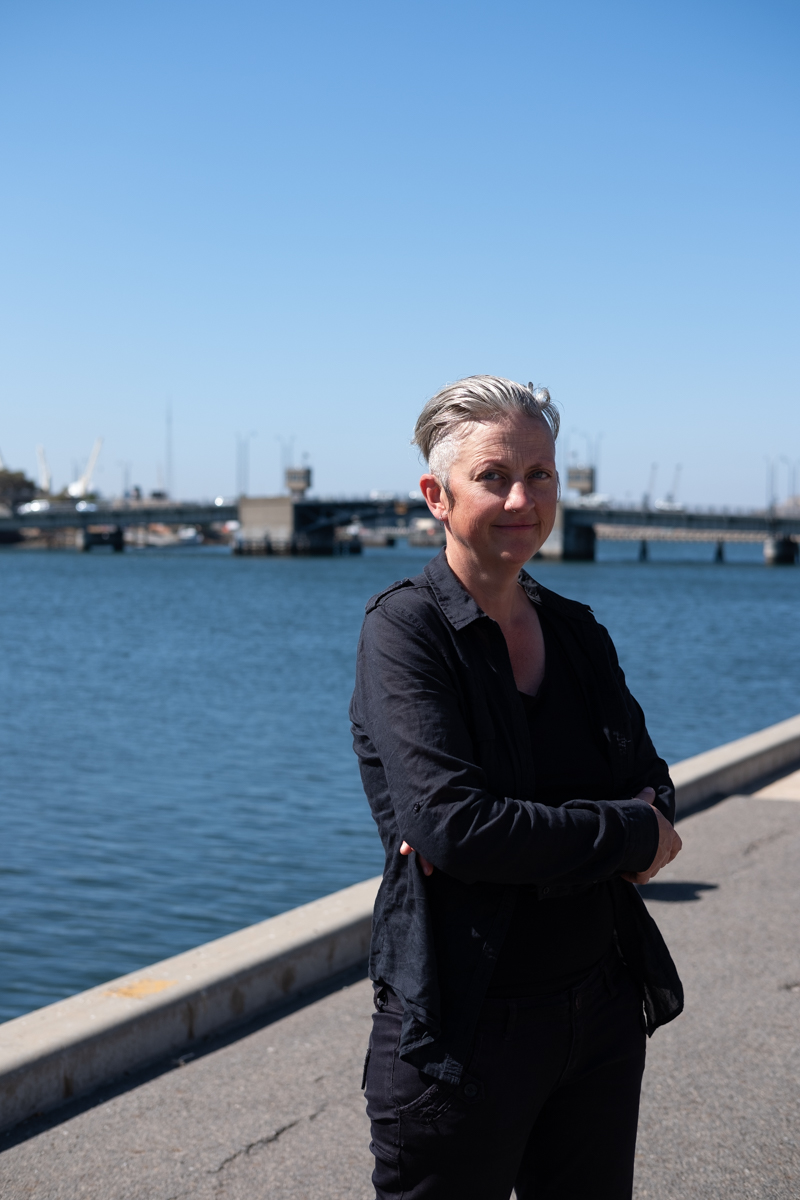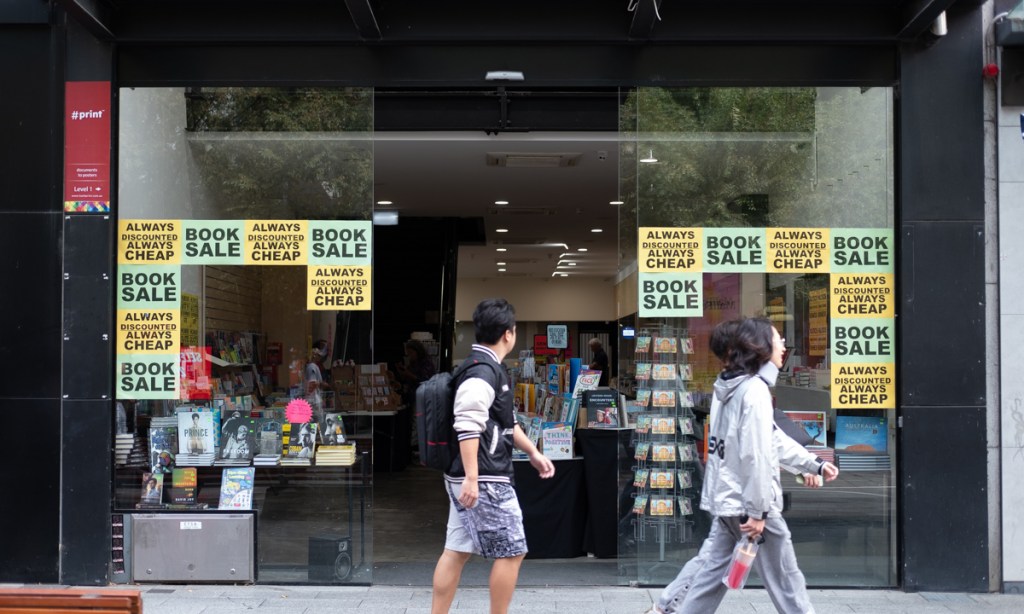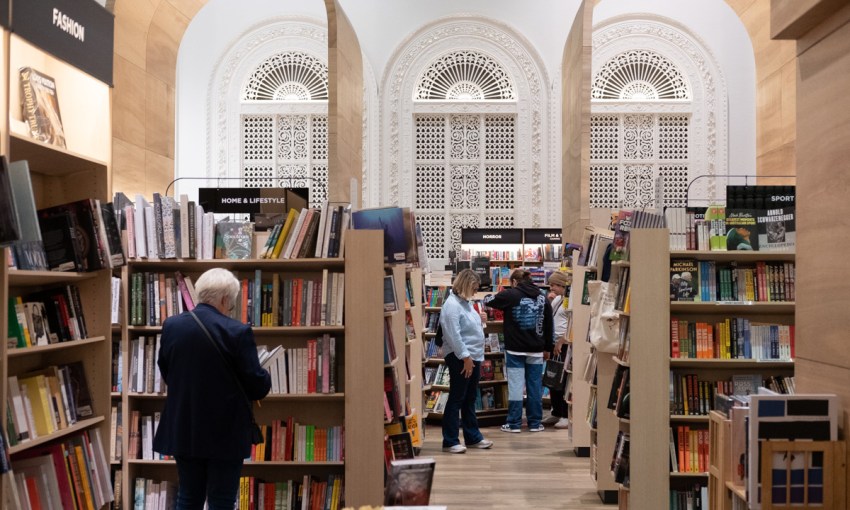Book publishing in Australia is a billion-dollar industry, but authors on average earn an annual wage below the poverty line. CityMag speaks with three Adelaide writers about building a career as an undervalued but crucial component of Australia’s literature machine.
The weight of our words
In the pandemic, we turned to stories. Stuck in our homes, books – as well as films, television, and video games – offered us an escape from the drudgery of lockdowns, but they also helped us connect with all the things outside our windows.
In 2020, sales in the book industry grew 7.8 per cent. And while the benefits of those increased sales didn’t flow on to everyone in the industry (with capitalism, they never do), it was clear that people were reaching for stories in a time of uncertainty.
Piri Eddy is The Mill’s Writer in Residence.
This work was contributed through The Mill’s writer-in-residence program.
For more information on the program, see here.
And yet, it was the pandemic that reiterated to author Jennifer Mills how precarious her job as a writer was. Despite working full-time for 15 years, during which she’d published five novels, had won or been nominated for prizes, and written many more articles and essays for various outlets, Jennifer realised how quickly things could become desperate when “there’s an illness, or a change of circumstance, or some kind of crisis that you have to face”.
“I didn’t have sick leave, I didn’t have superannuation that some people were able to draw on, and I didn’t have a lot of the things that other workers take for granted, and so the precarity became more visible on my mind,” she says.
For many writers – even those with a steady stream of published work – their output is made on a freelance basis. They’re another atomised part of the gig economy, with no clear pathways, self-managed sick leave and super, and often ad-hoc work. And when the work does come, the wages often don’t reflect the effort put in.
“[You] might get an advance [on a novel] that’s $10,000, and that’s a really good advance in Australian literary fiction,” says Jennifer. “But that’s three to five years of work for me, and that’s not enough to pay my rent. So I have to do all of the other jobs.
“It’s not sustainable. As I get older, I find it more frustrating having to chase and hustle.”

Jennifer Mills
Jennifer’s difficulties generating a fair income from her writing is shared by the majority of published authors in Australia. A recent report by Macquarie University surveying writers’ and authors’ yearly wages in Australia made for especially grim reading. Across a year, the grand total for an author’s wage was a paltry $18,200, averaged across all practicing authors surveyed. To put that number into perspective, a 2022 snapshot of poverty in Australia by the Australian Council of Social Service found that the poverty line equated to earnings of just $489 a week, or around $25,000 a year.
Those earnings come despite the publishing industry being worth about $1.7 billion a year. And that’s before you take into account the ripple-on effects that books generate for other industries, such as film and television, where books often become source material for blockbusters and award-season darlings.
Then there’s the intrinsic value that books create, which, Jennifer says, “you can’t actually put a dollar value on”. More than just words on paper, books contain our hopes and aspirations, challenge our sense of selves and our beliefs, grapple with our past and imagine our futures. They give voice to marginalised stories and help to reveal the inequities of our society.
It’s a curious and damning paradox. While the publishing industry is such an important aspect of our economy and of our sense of selves, those working at the metaphorical coal face – the writers themselves – are effectively working below the poverty line.
The results of this disconnect are that, more and more, writers are forced to split their work between writing and finding other income sources. The Macquarie report found that, typically, writers spend only half their time working on original work, a reality that can affect the depth of creative output.
Patrick Allington, author of the novels Figurehead and, most recently, Rise and Shine, agrees that writing in this way reduces the “capacity to think and write… it influences the projects I choose to tackle”.
When Patrick has freelanced, his income is a mix of writing and writing-adjacent work, like book criticism, research, and workshops. Without this diversity, Patrick says “writing full-time is unsustainable for me”.

Patrick Allington
The work related to, but which is not writing remains vital. Book criticism enriches the ecosystem through dialogue and sharing; writing workshops help train future storytellers. Still, this sort of split-personality portfolio approach can, without other support, diminish the ambition and depth of storytelling. It affects the types of stories a writer can tell, and how they tell it.
“You don’t get to go deeply into the work that you’re doing unless you have some kind of other support,” Jennifer says. “A grant or residency where you can go, ‘Oh, I can let all the other things go’.”
Whether you write full-time or subsidise it with other work, the fact you’ll likely be chronically underpaid for your work, or not paid at all, means a writing career can easily become unsustainable – a vocation of the already privileged and those with a safety net. Without adequate support, current and future storytellers fall by the wayside. Writers lose the ability to tell stories.
In this reality, we all lose, because the stories we hear about ourselves come from a narrower and narrower source.
Lur Alghurabi, a writer and poet who was, until recently, co-director of the National Young Writer’s Festival, notes the absurdity of an industry that is filled with so much passion, yet so little financial remuneration. And, as she points out, it’s not just the writers – it’s almost everyone, from volunteers to editors, festival organisers to publishers, who are essentially working on an unsustainable cocktail of goodwill and low wages.
“I don’t see why anyone would take this job (as a writer). They have absolutely no reason to do it,” Lur says. “And the people who have the most underrepresented stories are the ones who are least equipped to take [it].”
We can never know how many important stories we’ve already lost, or will be lost in the future – the writers who can no longer sustain their work, or who are never given a chance in the first place. Significantly, this extends to First Nations stories.
“The environment is designed to be so hostile towards underrepresented voices and to First Nations voices that I don’t know if we’ll ever hear these stories,” says Lur. “There is a funeral to be had there for those stories that will never eventuate because they were never given the right environment.”

Lur Alghurabi
Addressing this loss is multifaceted. More funding is important. Direct support in the form of government grants and fellowships could be increased, but Jennifer also sees merit in residency programs in schools that are federally funded. “Every child should go to school with an artist-in-residence,” she says. “And be able to meet an author or a painter or a dancer.”
Another solution is setting minimum standards for pay, and ensuring it’s enforceable. More than just that, Jennifer advocates for a broader universal basic income (UBI), both for artists and society more generally. She points to a trial program in Ireland that supported artists with a UBI.
“I think we should look at a trial of a similar size to the Irish one. You could do it in South Australia quite easily,” Jennifer says.
For Lur, there are systemic issues at play that need addressing, alongside more immediate financial measures, especially in terms of who is calling the shots. It means writers seizing the means of publishing.
“Leadership positions would need to change,” she says. ‘Writers can no longer be just the court jesters or the performers who write the thing that sells a few tickets or gets a couple of clicks according to the whims of people in leadership roles that have no skin in that game.”
Publishing is by no means the only industry beset by these problems. Cultural policy in Australia has been crying out for a reset for more than a decade. The pandemic emphasised serious systemic deficiencies that were already there (as it did for so many other spheres of life). So it’s no surprise federal Labor’s push ahead with a national cultural policy review was generally (if warily) welcomed.
The overarching policy, dubbed Revive, established five interconnected pillars to guide policy across the next five years, including the centrality of First Nations voices, and a recognition of artists as workers. Amongst the announcements was a clear recognition of literature’s value – and chronic undervaluation – as well as mechanisms announced that should translate to more income for writers, and more opportunities for diverse stories to be told. Importantly, a new national writing body will be established, along with a body that aims to ensure fair pay rates for arts freelancers.
Patrick sees positives in the policy but encourages the community to “engage constructively and critically with the new cultural policy”. “We can do so without becoming cheerleaders for government, especially when systemic change is yet to happen,” he says.

The symbolism of a government, for the first time in at least a decade, waving the flag for artists is not lost on Patrick, and he sees it containing wins for writers. One of those was the introduction of compensation for e-book and audiobook loans from libraries – a sizeable income source that has so far been missed by writers.
“Beyond that, it’s way too soon to assess the national cultural policy,” says Patrick. “But this is an opportunity, should we wish to take it, to consider all aspects of the publishing industry – to consider how everything fits, or doesn’t fit, together.”
We’re a way off from seeing whether Revive will lead to more artists in schools, or a fair and basic income for writers. But it is at least the beginning of a conversation to address the paradox of a near two-billion-dollar industry that inadequately values not just its writers but all the essential members who support it.
In the meantime, without deeper, structural shifts in the way publishing is set up – and those within it calling the shots – there remain significant challenges to support a diversity of voices and stories. That is a process that one cultural policy cannot fix. It relies on all of us – from readers to industry workers, policy-makers to writers themselves – deciding that writing matters.
It’s a challenge, but not an impossible one. As Jennifer says, “We can decide that books are worth something as a society and pay people fairly because we think that’s good.”
If we do that – or perhaps even if we don’t – we’ll keep telling stories that tell us something about ourselves, that reveal the complexity and contradictions of life.
“I’m optimistic about the future of storytelling,” says Patrick. “I’m more guarded about the future of the novel, but one way or another we will continue to tell, hear and speak back to stories.”




